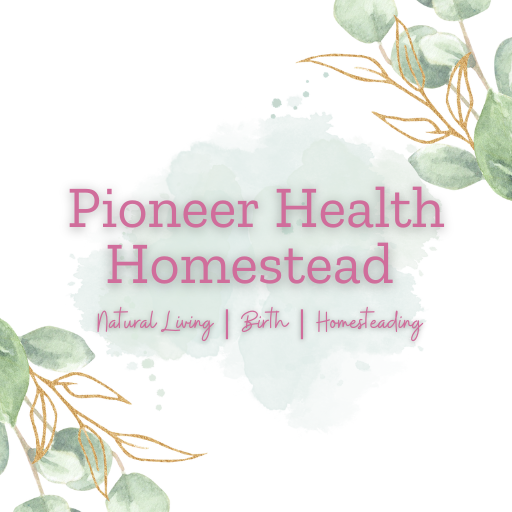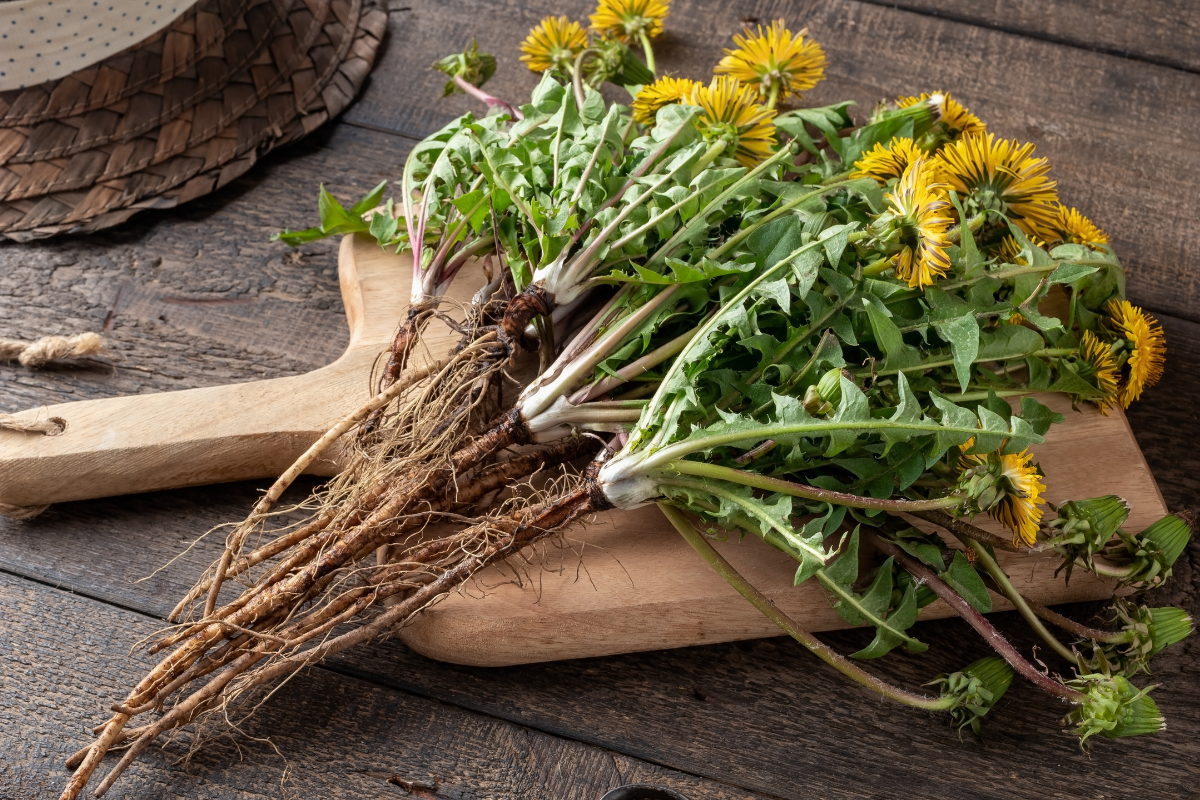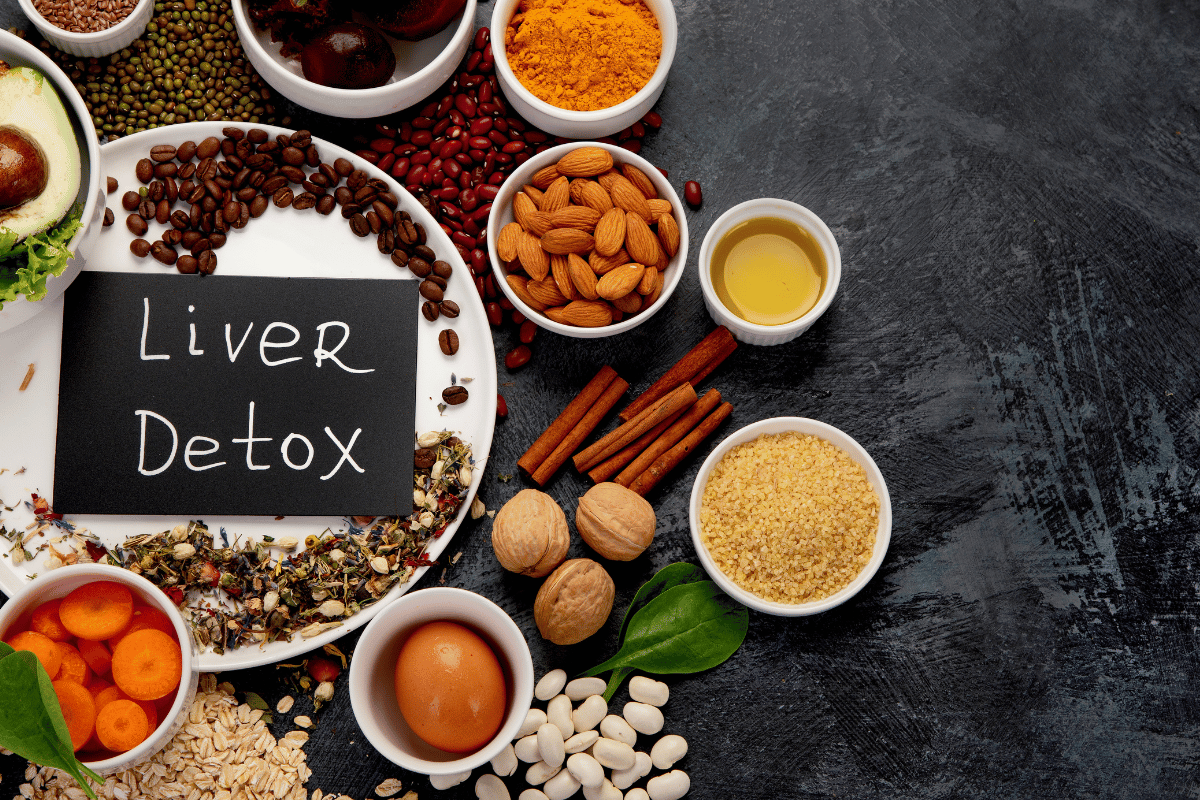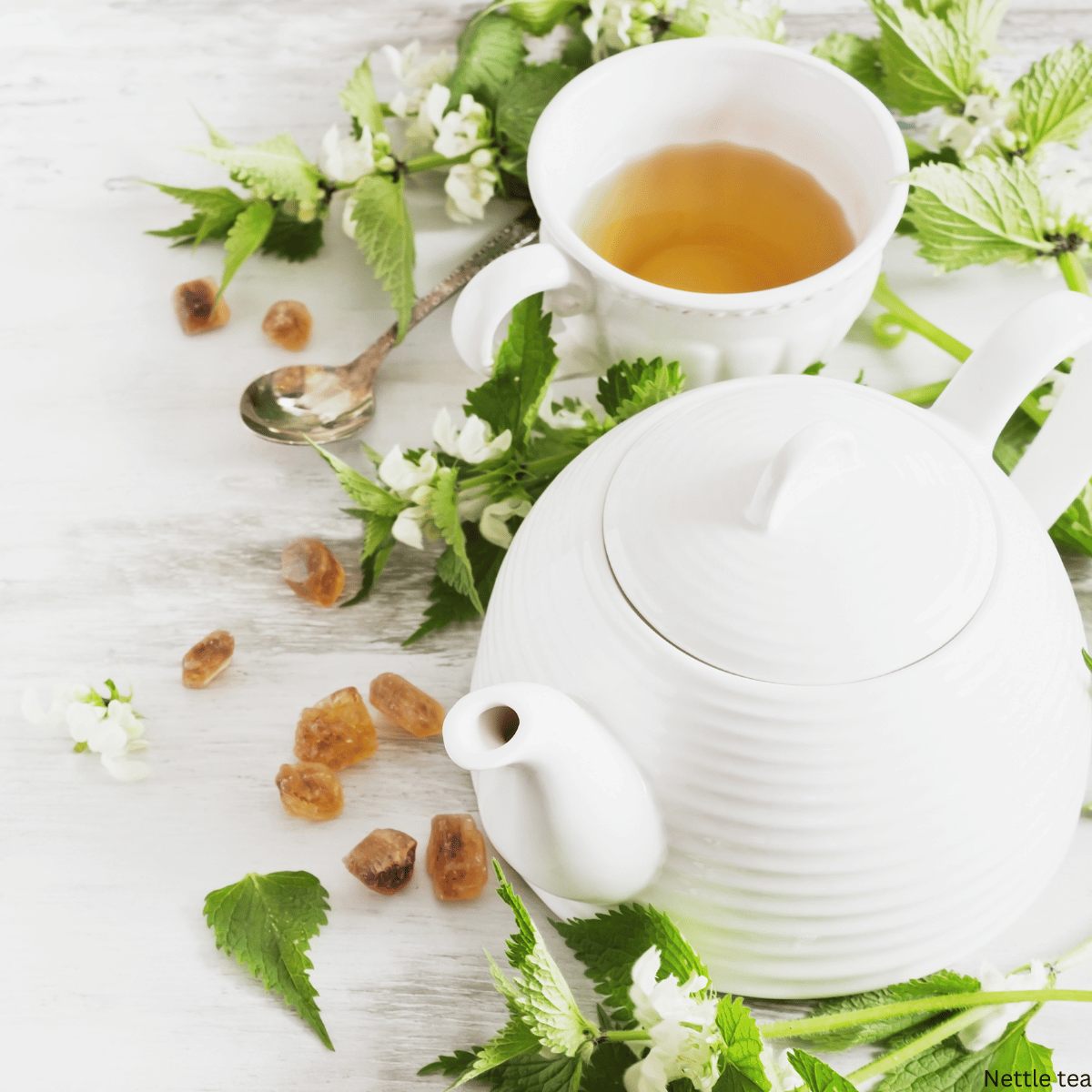Best Herbs for Pregnancy Support and Herbal Remedies
These are the best herbs for pregnancy support and herbal remedies. Pregnancy invites the opportunity to embrace herbal medicines for the nourishment and fortification of the body. Let’s explore the benefits, precautions, and safe practices surrounding the use of herbs and essential oils for pregnant women.

While I am a registered nurse (RN, BSN), I am not a medical doctor. Please take this education and speak with your healthcare provider before taking these herbs.
As an Amazon Associate, I earn from qualifying purchases. This post contains affiliate links, which means I make a small commission at no extra cost to you. You can view our privacy policy here.
Understanding Pregnancy Trimesters
First Trimester:
Overview:
The first trimester spans from week 1 to 12 weeks of pregnancy. It’s a crucial period marked by the early development of the embryo and significant physiological changes in the mother’s body.
Challenges:
1. Morning Sickness: Many women experience morning sickness during this trimester, which involves nausea and sometimes vomiting. It can be influenced by hormonal changes.
2. Fatigue: Increased progesterone levels can contribute to feelings of fatigue and lethargy.
3. Increased Urination: Hormonal shifts and the growing uterus can lead to increased frequency of urination.
4. Emotional Changes: Hormonal fluctuations may contribute to mood swings and emotional changes.
Precautions:
1. Prenatal Care: Initiate regular prenatal check-ups to monitor the health of both the mother and the developing embryo.
2. Nutritional Focus: Pay attention to proper nutrition, including folic acid intake, which is crucial for early fetal development.
3. Hydration: Ensure adequate hydration to cope with increased demands on the circulatory system.
4. Rest: Prioritize sufficient rest to alleviate fatigue and support the body’s adjustments.

Second Trimester:
Overview:
The second trimester spans from week 13 to week 26. Often referred to as the “honeymoon phase” of pregnancy, this trimester is marked by reduced symptoms and increased energy for many women.
Challenges:
1. Body Changes: The abdomen expands, and the baby bump becomes more noticeable.
2. Skin Changes: Some women experience changes such as the development of a dark line (linea nigra) on the abdomen and skin pigmentation changes.
3. Heartburn and Indigestion: The growing uterus can exert pressure on the stomach, leading to digestive issues.
4. Leg Cramps: Muscle cramps, particularly in the legs, may occur.
Precautions:
1. Regular Exercise: Engage in safe and moderate exercise to promote overall well-being.
2. Balanced Nutrition: Continue focusing on a balanced diet to support the developing fetus.
3. Prenatal Testing: Consider undergoing routine prenatal screenings and tests.
4. Monitoring Movements: Pay attention to fetal movements, which become more perceptible during this trimester.

Third Trimester:
Overview:
The third trimester spans from week 27 until childbirth. It is marked by further physical changes and preparation for labor and delivery.
Challenges:
1. Back Pain: Increased weight and a shifting center of gravity can lead to back pain.
2. Shortness of Breath: As the uterus expands, it may press against the diaphragm, causing shortness of breath.
3. Braxton Hicks Contractions: These are practice contractions that may become more noticeable in preparation for labor.
4. Swelling: Some women experience swelling in the hands, feet, and face.
5. High Blood Pressure: Some women can develop high blood pressure or even preeclampsia after 28 weeks pregnant.
Precautions:
1. Regular Monitoring: Attend more frequent prenatal check-ups to monitor the baby’s growth and well-being.
2. Pelvic Floor Exercises: Practice pelvic floor exercises to prepare for labor.
3. Birth Plan: Consider developing a birth plan and discussing it with your healthcare provider.
4. Rest and Relaxation: Prioritize rest to conserve energy for labor and delivery.
Understanding and addressing the unique challenges and precautions associated with each trimester empowers expectant mothers to navigate their pregnancy with informed care. Always consult with healthcare providers for personalized guidance based on individual circumstances.
Herbs and Pregnancy: Caution and Considerations
Exploring the best herbs for pregnancy support and herbal remedies is essential. It’s crucial to bear in mind that despite the long-standing human history of safely using herbs, there remains a limited number of studies demonstrating their safety and effectiveness during pregnancy. Therefore, it’s imperative to keep several key points in mind.
Firstly, the natural label doesn’t always equate to being harmless or universally safe. Many herbs can be contraindicated, have adverse effects, or interact with medications, particularly during specific trimesters of pregnancy. Additionally, some herbs can pass through the placenta, directly impacting the developing fetus.
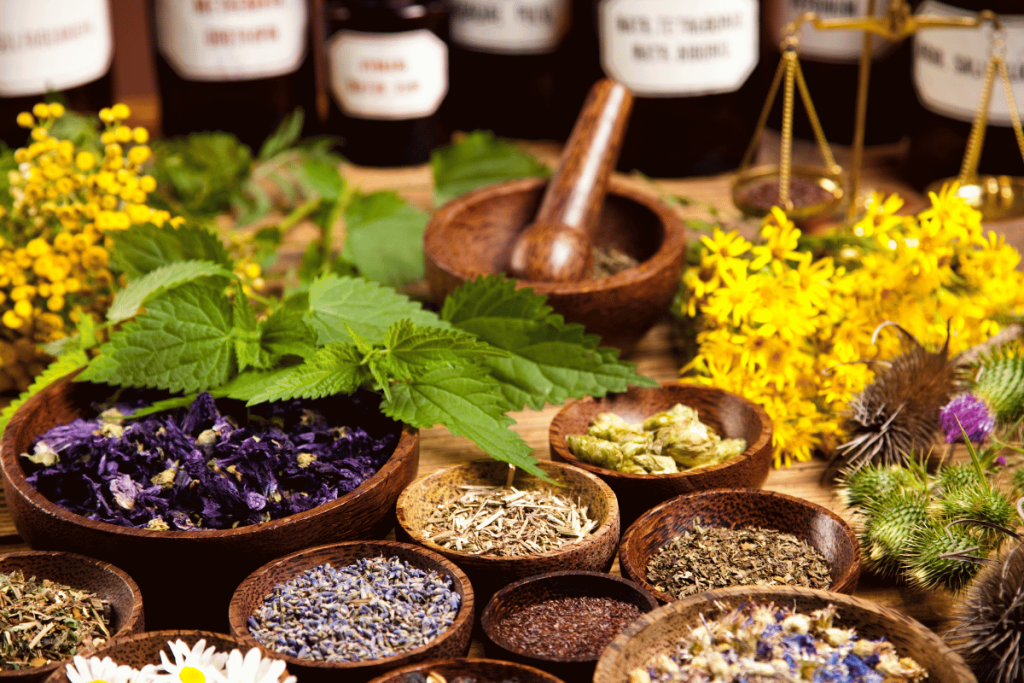
Moreover, the physiological and metabolic changes occurring during pregnancy can alter how an herb interacts with the body. Unless medically indicated, some individuals may need to exercise caution and potentially avoid certain herbs and drugs, especially during the first trimester. Adopting a preventative approach and intervening early with herbs proves to be safer and more effective than addressing advanced problems later on. It’s crucial to gain a thorough understanding of each herb under consideration, comprehending potential side effects and contraindications during pregnancy.
Some herbs are contraindicated for use during pregnancy.
Some of these include:
- Buckthorn (Rhamnus)
- Aloe Vera (Aloe barbadensis miller)
- Angelica (Angelica archangelica)
- Arnica (Arnica montana)
- Autumn Crocus (Colchicum autumnale)
- Barberry (Berberis vulgaris)
- Beth Root (Trillium pendulum)
- Blessed Thistle (Cnicus benedictus)
- Blood Root (Sanguinaria canadensis)
- Blue Cohosh (Caulophyllum thalictroides)
- Broom (Cytisus scoparius)
- Butternut (Juglans cinerea)
- Calamus (Acorus calamus)
- Calendula (Calendula officinalis)
- Cascara Sagrada (Frangula purshiana)
- Coltsfoot (Tussilago farfara)
- Comfrey (Symphytum officinale)
- Cotton Root (Gossypium)
- Cowslip (Primula veris)
- Feverfew (Tanacetum parthenium)
- Ginseng (Panax ginseng)
- Goat’s Rue (Galega officinalis)
- Goldenseal (Hydrastis canadensis)
- Ipecac (Psychotria ipecacuanha)
- Juniper Berries (Juniperus communis)
- Licorice (Glycyrrhiza glabra)
- Lily-of-the-Valley (Convallaria majalis)
- Lobelia (Lobelia inflata)
- Male Fern (Dryopteris filix-mas)
- Mandrake (Mandragora officinarum)
- Mistletoe (Viscum album)
- Mugwort (Artemisia vulgaris)
- Nutmeg (Myristica fragrans)
- Parsley (Petroselinum crispum)
- Pennyroyal (Mentha pulegium)
- Periwinkle (Vinca minor)
- Pleurisy Root (Asclepias tuberosa)
- Poke Root (Phytolacca americana)
- Rhubarb (Rheum rhabarbarum)
- Rue (Ruta graveolens)
- Sage (Salvia officinalis)
- Sarsaparilla (Smilax regelii)
- Shepherd’s Purse (Capsella bursa-pastoris)
- Stillingia (Stillingia sylvatica)
- Tanzy (Tanacetum vulgare)
- Thuja (Thuja occidentalis)
- Wormwood (Artemisia absinthium)
- Yarrow (Achillea millefolium)
Miscarriage Risk:
Certain herbs can induce uterine contractions, potentially leading to miscarriage.
Safety Considerations:
- – Limited studies on herb safety during pregnancy.
- – The term “natural” doesn’t guarantee harmlessness.
- – Herbs may interact with medications and impact specific trimesters.
Direct Fetal Impact:
- – Some herbs can traverse the placenta, affecting the developing fetus.
- – Physiological changes during pregnancy can influence herb effects.
Preventative Treatment:
- – Early intervention and preventative measures are deemed safer.
- – Understand each herb’s contraindications and side effects.
Warning Signs During Pregnancy
Seek medical attention for:
- – Persistent vaginal bleeding.
- – Initial herpes outbreak in the first trimester.
- – Severe pelvic or abdominal pain.
- – Persistent mid-back pain.
- – Edema of the hands and face.
- – Severe headaches or blurry vision.
- – Upper abdominal pain.
- – Rupture of membranes before 37 weeks.
- – Regular uterine contractions before 37 weeks.
- – Cessation of fetal movement.
Safe Herbs During Pregnancy
A healthy pregnancy is not without its challenges. Most women will have at least one or two of the common ailments at some point. Consider the following safe herbs during pregnancy, each offering unique benefits along with recommended dosages. Most of these medicinal herbs can be taken as herbal teas, herbal supplements in capsule form, or tinctures and glycerites.
Also check out my other blog post Best Herbs for Anxiety While Breastfeeding: Herbal Remedies
Red Raspberry
Red Raspberry (Rubus idaeus) Leaves, a powerhouse of nutrients, play a crucial role in promoting overall well-being during pregnancy. Enriched with manganese, an essential element vital for cellular oxygenation, these leaves have been valued by herbalists for centuries.
Manganese Richness: Red raspberry leaves boast a significant manganese content, contributing to optimal cellular oxygenation.
Nutrient-Packed Profile: Packed with tannins, vitamin C, calcium, phosphorus, iron, and trace minerals, these leaves serve as a comprehensive source of essential nutrients.
Uterine Health: Recognized for its healing properties for the uterus, red raspberry has been a staple in herbal remedies. It plays a key role in nourishing the blood with its mineral and vitamin content.
Menstrual Regulation: When taken during pregnancy, red raspberry helps regulate the flow of menses, preparing the uterus for the challenges of labor.
Preparation for Labor: Analogous to preparing for a marathon, incorporating red raspberry during pregnancy aids in strengthening the uterus, essential for the demands of labor.
Postpartum Benefits: Red raspberry facilitates postpartum recovery by assisting the uterus in returning to its normal size after childbirth.
Breastfeeding Support: The herb contributes to breastfeeding by enriching breast milk production, promoting the overall well-being of both mother and baby.
Morning Sickness Relief: Known for its soothing properties, red raspberry has been used to alleviate and prevent morning sickness during pregnancy.
Safe Usage: With no known warnings, red raspberry is considered safe during pregnancy. It can be taken in various dosage forms, such as a standard infusion of 48 ounces three times a day or capsules of 1000 to 2000 mg three times a day, providing flexibility in consumption.
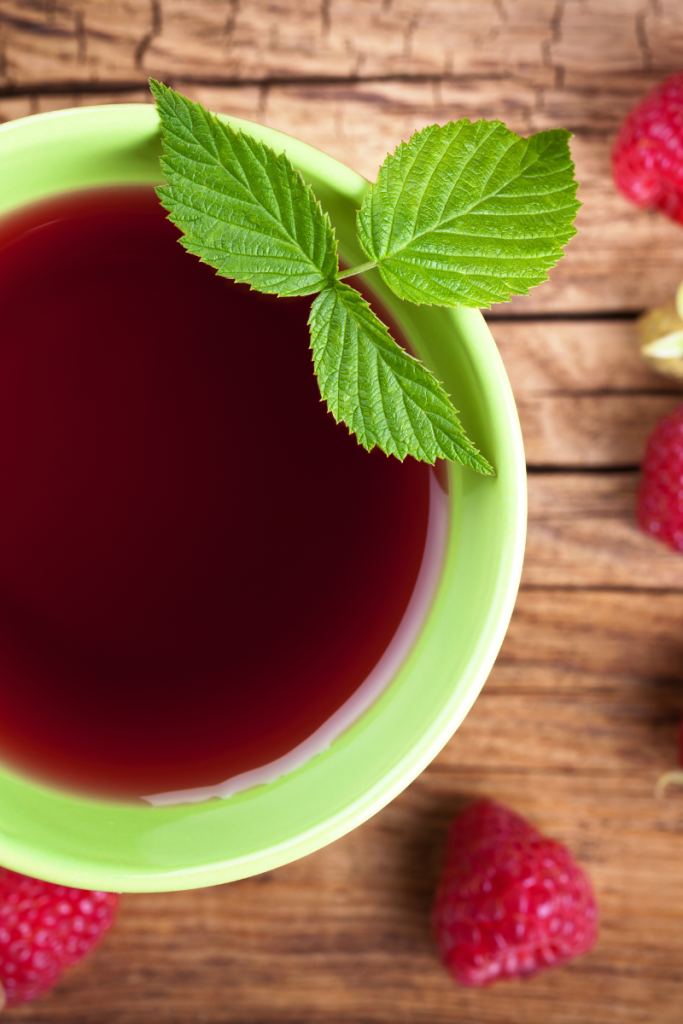
Echinacea
Echinacea (Echinacea purpurea), a versatile herb, exerts its influence on the blood, immune system, and lymphatic system. Boasting therapeutic actions as an alternative, antiseptic, stimulant, tonic, and diaphoretic, it proves valuable for overall health.
Blood and Immune System Impact: Echinacea plays a crucial role in stimulating digestion, reviving appetite, and improving digestive functions, which is vital for returning to good health.
Immune Stimulation: Recognized for its immune-boosting properties, Echinacea aids in the stimulation of the immune system, particularly during pregnancy when the body is susceptible to viral infections like colds and flu.
White Blood Cell Production: Research indicates that Echinacea root contributes to the increase in white blood cell production, further enhancing the body’s defense mechanisms.
Safety Considerations: Generally considered non-toxic and mostly harmless, Echinacea warrants cautious use in individuals with autoimmune disorders or those suffering from leukemia.
Dosages: Depending on personal preferences, Echinacea can be consumed in various forms, including a standard decoction of 2 to 4 ounces three times a day, a tincture of 1 to 5 mL 3 to 6 times a day, glycerin ranging from 2 to 8 mL, or capsules of 400 to 1200 mg 3 to 4 times a day. Additionally, it can be applied topically as a standard decoction or tincture in the form of a wash or compress for infection-related purposes.

Ginger
Ginger (Zingiber officinale) root, a widely embraced herb during pregnancy, is renowned for its efficacy in alleviating nausea and vomiting, particularly associated with morning sickness, hyperemesis gravidarum, and general pregnancy-related nausea.
- – Widely used for relieving nausea and vomiting during pregnancy.
- – Specifically recommended for morning sickness, hyperemesis gravidarum, and general pregnancy-related nausea.
- – Safe to consume up to 1 g of dried powder per day during pregnancy.
- – Higher doses of ginger are traditionally considered emmenagogic, potentially inducing menstruation.
- – Caution is advised, and it’s essential to weigh potential risks against benefits.
Anti-Inflammatory Properties:
- – Similar to Echinacea, ginger is known for its anti-inflammatory effects.
- – Demonstrated effectiveness comparable to ibuprofen in reducing pain and inflammation.
Antiviral and Antibacterial Qualities:
- – Fresh ginger exhibits potent antiviral and antibacterial properties.
- – Beneficial for addressing common colds, flu, bacterial, and viral gastroenteritis.
Caution and Reported Effects:
- – Some herbalists caution against ginger use during pregnancy.
- – However, there have been no reported adverse effects for women using ginger in pregnancy.
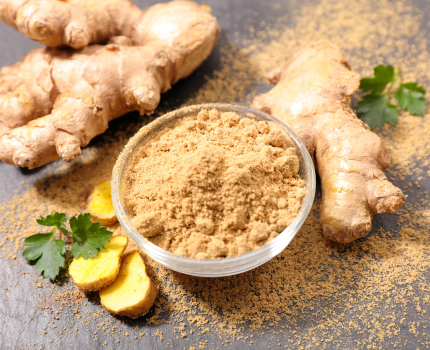
Cranberry
Cranberry (Vaccinium macrocarpon), as pregnancy progresses, the risk of urinary tract infections (UTIs) tends to rise due to the growing fetus putting pressure on the bladder. Combat this common woe by incorporating cranberries into your daily routine.
The Cranberry Prescription: Aim for a daily intake of 16 to 32 fluid ounces of cranberry juice for optimal results. This natural elixir is armed with antioxidants to combat free radicals in your body.
Historical Nutrient Boost: Cranberries are not just a modern remedy; they have a historical role too. Rich in vitamin C, they were a nautical antidote against scurvy, safeguarding sailors on their voyages.
Choose Wisely – No Sugar Added: If opting for commercially prepared cranberry juice, choose varieties without added sugar. Embrace the pure essence of cranberries for maximum health benefits.
Cranberry Consumption Options:
- – *Fresh Whole Cranberries:* Indulge in 1.5 ounces daily for a delightful and nutritious addition.
- – *Juice Concentrate Sans Sugar:* Sip on 3 to 8 ounces daily for a concentrated health boost.
- – *Capsule or Powder Form:* Convenience meets health with 1000 to 3000 mg, 2 to 3 times daily.
No Caveats, Only Cranberry Benefits: Rest easy knowing there are no known warnings associated with cranberry consumption during pregnancy.
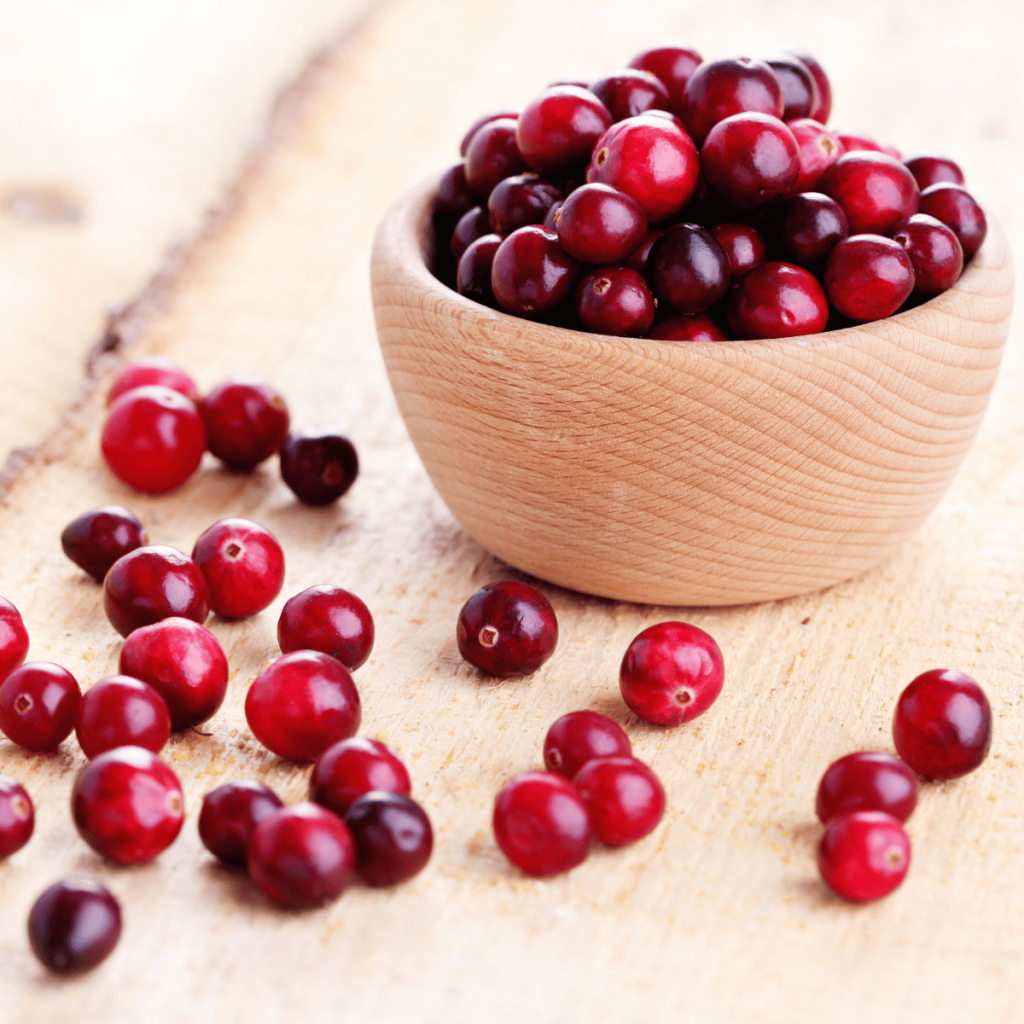
Chamomile
Chamomile (Chamomilla recutita, Matricaria recutita), is an herbal ally that offers more than just a calming cup of tea during your pregnancy journey.
Versatile Relaxation: Chamomile emerges as a versatile remedy, addressing concerns like insomnia and flatulence (commonly known as gas). It extends its soothing touch to induce a state of general relaxation.
Anti-Inflammatory: It contributes to anti-inflammatory effects, providing relief to an array of discomforts.
Gentle on the Nerves: Pregnancy can bring its share of stress. Chamomile steps in to calm the nerves, promoting a sense of serenity during this transformative period.
Stomach Settler: Settle the stomach with chamomile’s gentle touch. It aids in expelling gas, offering digestive comfort when you need it the most.
Allergen Caution: While allergic reactions to chamomile are uncommon, it’s prudent to exercise caution, especially if you have a history of allergies to herbs or other substances.
Dosage Guidelines:
- Cold Infusion: Enjoy 2 to 8 ounces, up to three times a day, embracing the calming ritual of chamomile tea.
- Tincture: 1 to 5 mL, one to four times daily, leveraging the concentrated benefits of chamomile.
- Glycerite: 1 to 5 mL, one to four times a day, ensuring a balanced and gentle approach.
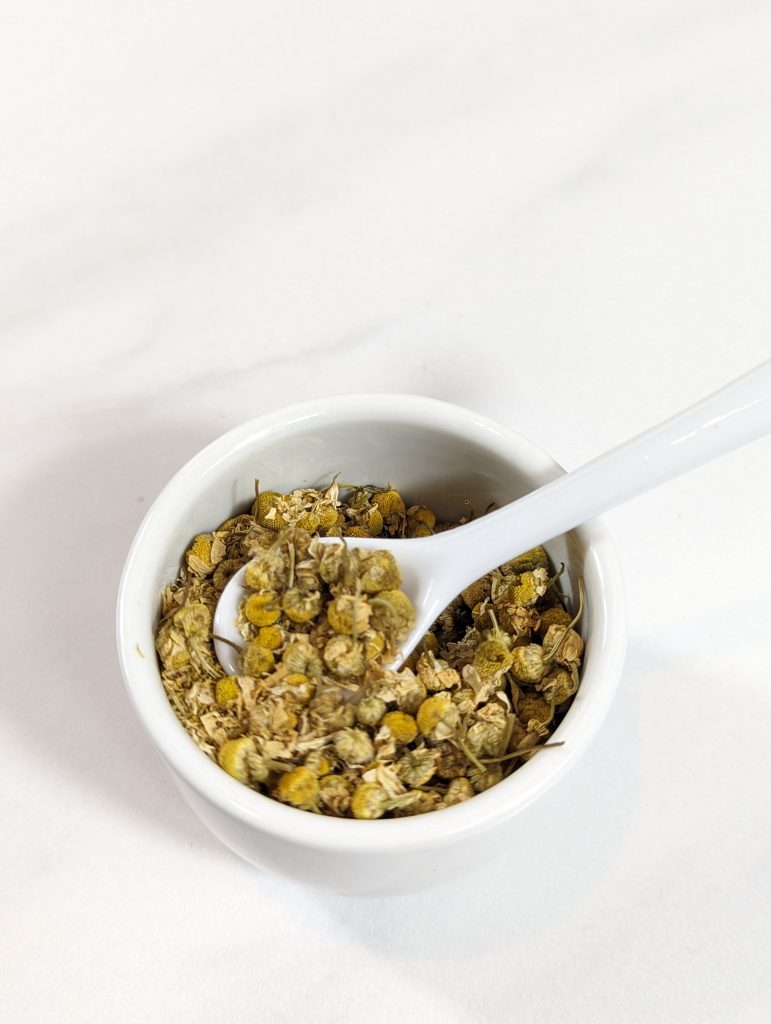
Nettle
Nettle (Urtica dioica) is an herbal ally that goes beyond taste to offer a plethora of benefits during your pregnancy.
Nutrient-Rich Elixir: Nettle stands tall as a nutrient-rich herb, boasting iron, calcium, magnesium, protein, and various essential nutrients. It becomes your go-to elixir for nurturing healthy blood, bones, joints, and skin throughout pregnancy.
Anemia and Weakness: Combat anemia, low blood pressure, and the general weakness that can accompany fatigue and exhaustion with the formidable support of nettle.
Anti-Inflammatory and Anti-Allergenic: Experience the dual benefits of nettle with its anti-inflammatory and anti-allergenic properties. It has become a reliable ally for addressing allergies, asthma, and various skin issues.
Dosages:
- Standard Infusion: Embrace the nourishing ritual of 8 ounces of nettle infusion, 1 to 4 times a day, promoting holistic well-being.
- Tincture for Allergies: Incorporate 1 to 3 mL of nettle tincture three times a day to combat allergies effectively.
- Tincture for Kidney Support: Elevate kidney health with 2 to 5 mL of nettle tincture, administered three times a day for optimal support.
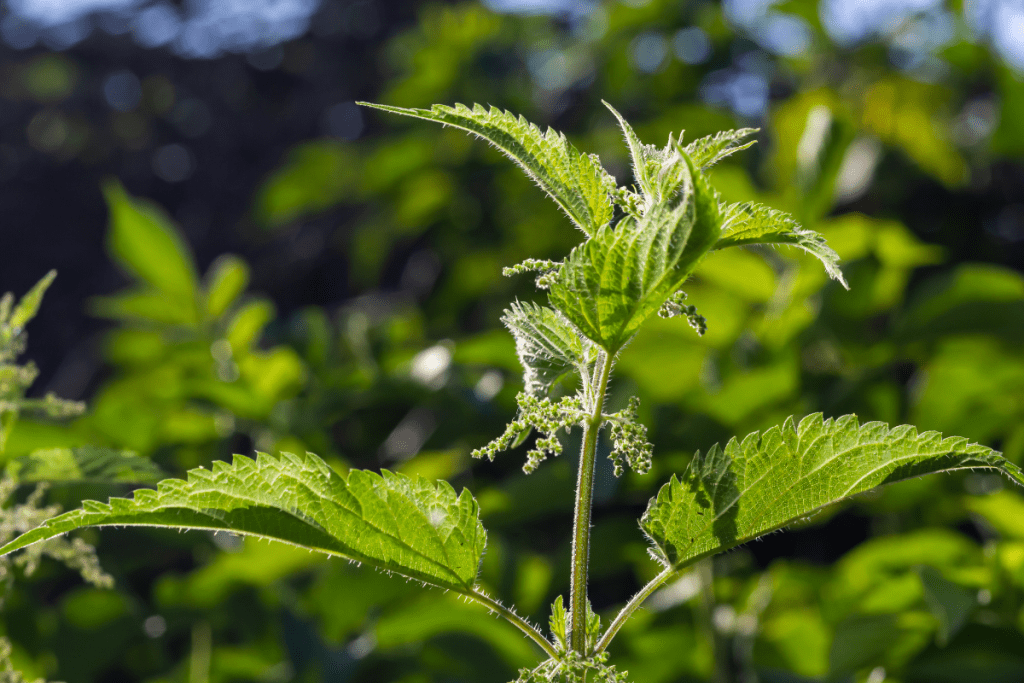
Alfalfa
Alfalfa (Medicago sativa) is herbal royalty, acclaimed as the “king of herbs” for its extraordinary depth and richness. This herb thrives in the depths, reaching 30 to 60 feet underground to absorb minerals and water that remain elusive to other plants.
Subterranean Nutrient Reservoir: Alfalfa’s extensive roots tap into a reservoir of vitamins, minerals, and trace minerals. This unique capability sets alfalfa apart as a nutrient powerhouse.
Dynamic Duo for Digestion: Combine alfalfa and peppermint in a tea for digestive well-being. This blend proves effective against common digestive issues like nausea and upset stomach.
Dosages: Fresh herbs by incorporating sprouts into various daily dishes. Enjoy the added benefit of daily tea consumption, 1 cup 1 to 2 times a day, for a dose of digestive support.

OatStraw
Oatstraw (Avena sativa), also known as milky oats, is an herbal ally celebrated for its dual role as a nervine and nutritive powerhouse.
Nervine Nectar: Oatstraw extends its calming touch to the nervous system, earning its place as a revered nervine.
Nutrient-Rich Elixir: Abundant in high silicon content, this herb becomes a catalyst for strengthening connective tissues, skin, mucous membranes, and nerve fibers.
Vitamins and Minerals: Oatstraw has lots of trace minerals and vitamins, contributing to the holistic development of the body. Its nurturing properties become particularly valuable for individuals facing illness, overexertion, and, notably, pregnant women.
Gluten Sensitivity Caution: Those with gluten sensitivity should tread with caution. Be mindful and consider alternatives if gluten sensitivity is a concern.
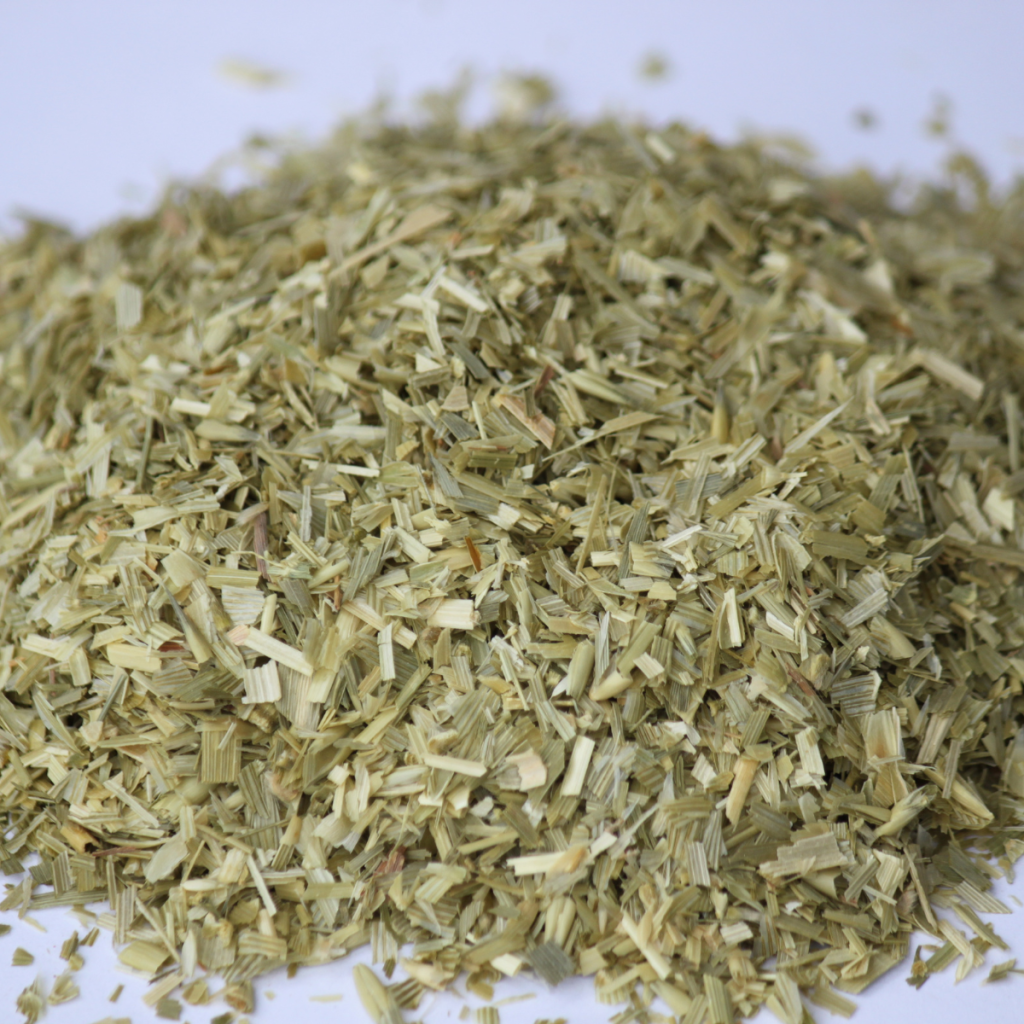
Rose Hips
Rose (Rosa spp.) hips are the vibrant fruit of the rose plant. As nature’s gift, these blooms play a vital role in enhancing your health and fortifying your immune system.
Capillary Strength: Rose hips fortify capillaries, thanks to their rich bioflavonoids and vitamin C content.
Immune System Elixir: Their wealth in vitamin C becomes a shield against acute illnesses, offering a natural defense against the challenges of colds and more.
Warnings: There are generally no known warnings associated with their consumption.
Dosages: in a weak infusion, sipping up to 3 cups daily, aligning with your body’s needs. Tincture form, with a recommended dosage of five drops to two mL, thrice a day. Opt for capsules, offering 1000 to 2000 mg three times a day, providing a convenient way to integrate rose hips into your routine.

While this information serves as a guide, always consult with healthcare providers before incorporating herbs during pregnancy. The well-being of both you and your baby should remain paramount throughout this transformative journey.
Check out my resources page on where to source organic herbs and other items.
Essential Oils During Pregnancy
The discussion around essential oils during pregnancy emphasizes the importance of using high-quality therapeutic oils externally and diluted due to potential skin sensitivity.
Specific recommendations for common concerns during pregnancy include:
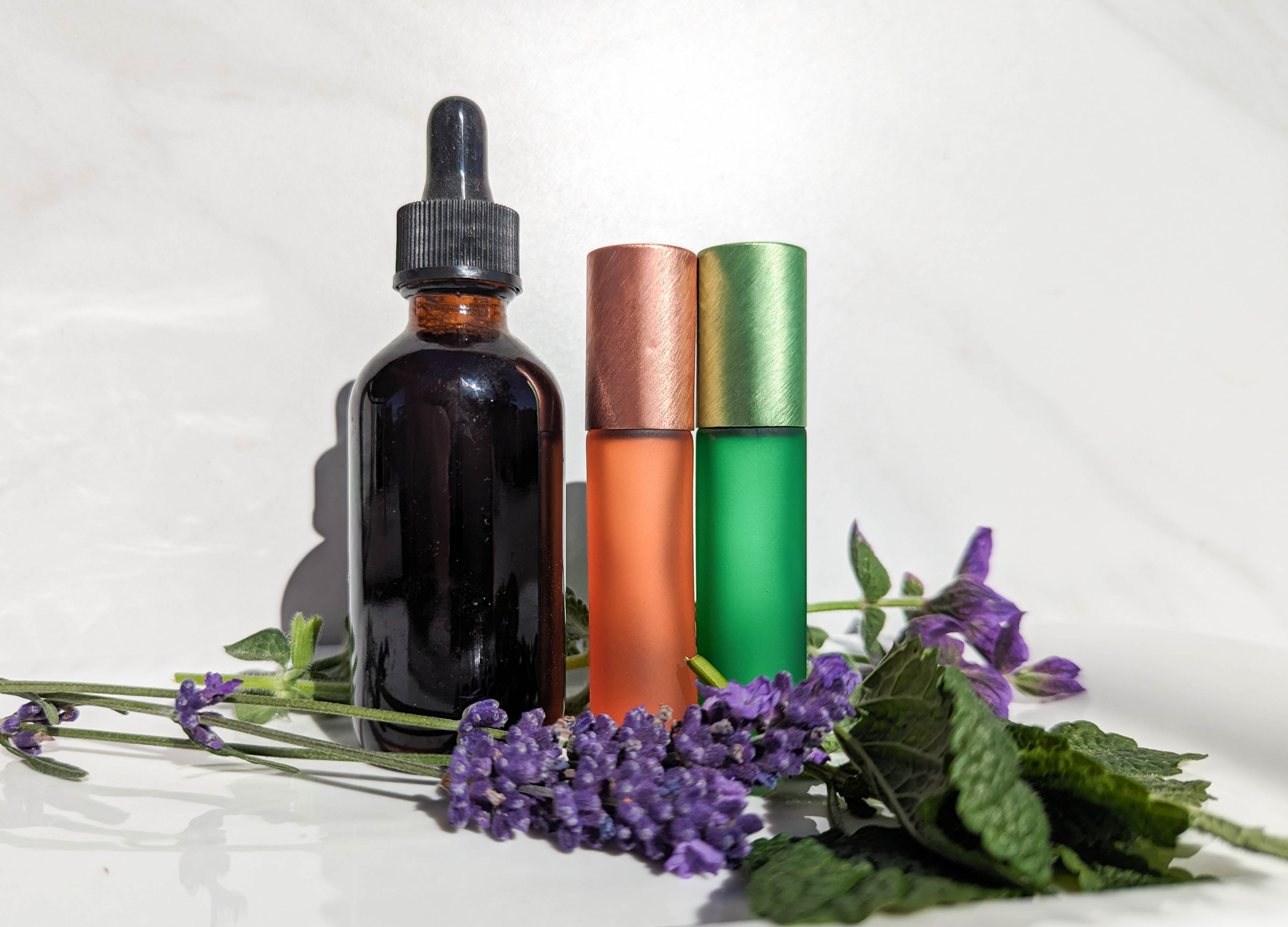
For Constipation:
– Essential Oils: Lemon, Peppermint, Fennel.
– Application: Massage into the abdomen or lower back with a carrier oil.
For Edema and Swelling:
– Essential Oils: Lavender, Ginger, Lemon.
– Application: Massage into legs, ankles, and feet with a carrier oil.
For Fatigue:
– Essential Oils: Wild Orange, Lemon, Grapefruit, Peppermint.
– Application: Diluted blend in a roller bottle, and apply it on wrists.
For Headaches:
– Essential Oils: Frankincense, Lavender, Chamomile.
– Application: Diluted blend in a rollerball, apply around the forehead, hairline, and temples (avoiding eyes).
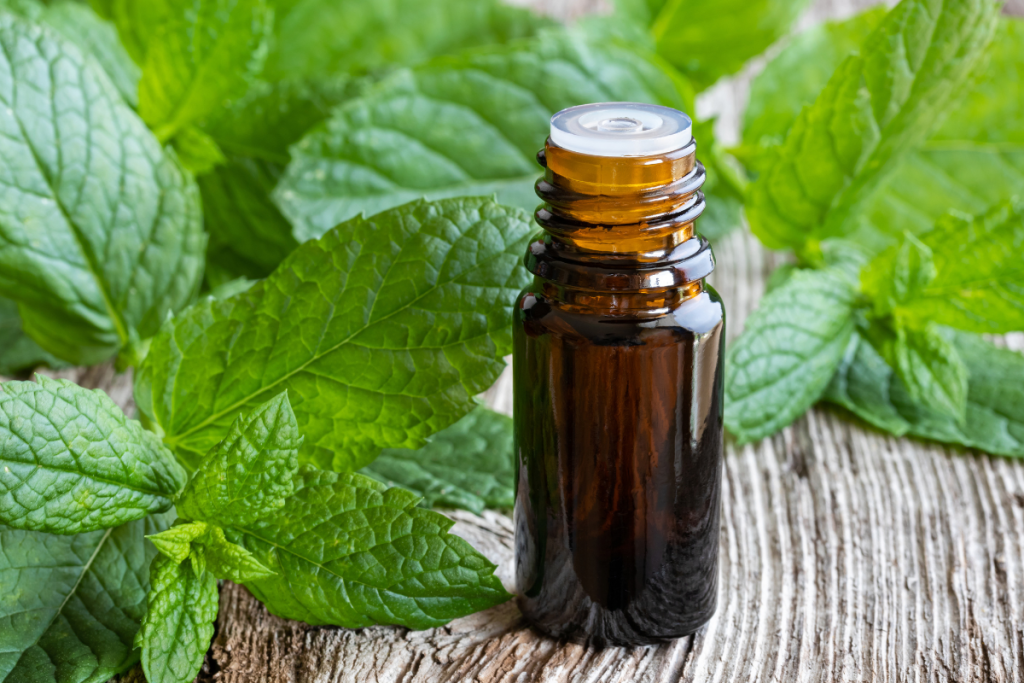
Herbal remedies while pregnant: Overview
Nurturing your body with these gentle allies can provide support and relief during this transformative time. Here’s a guide to herbal remedies considered safe during pregnancy:
1. Red Raspberry Leaf:
- Beneficial Elements: Rich in manganese, tannins, vitamin C, calcium, phosphorus, iron, and trace minerals.
- Pregnancy Perks: Strengthens uterine muscles for childbirth, aids in breastfeeding, and prevents morning sickness.
- Dosage: Standard infusion of 48 ounces three times a day or capsules 1000 to 2000 mg three times a day.
2. Echinacea:
- Therapeutic Actions: Supports blood, immune system, and lymphatic system.
- Pregnancy Application: Fights viral infections, especially colds and flu.
- Dosage: Standard decoction of 2 to 4 ounces three times a day, tincture of 1 to 5 mL 3 to 6 times a day, or capsules 400 to 1200 mg 3 to 4 times a day.
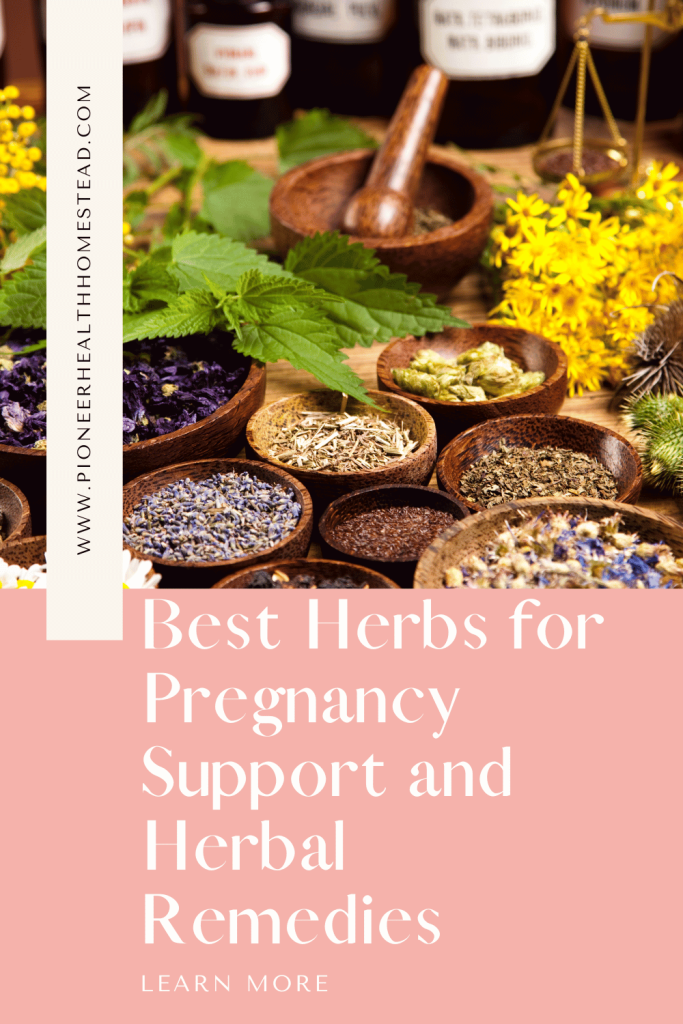
3. Ginger:
- Pregnancy Purpose: Relieves nausea, vomiting, and inflammation.
- Caution: Higher doses may have emmenagogue effects.
- Dosage: Up to 1 g dried powder per day.
4. Cranberry:
- For UTI Prevention: Prevents and relieves urinary tract infections.
- Rich Content: High in vitamin C and antioxidants.
- Dosage: 16 to 32 fluid ounces of juice per day or in capsule/powder form of 1000 to 3000 mg 2 to 3 times daily.
5. Chamomile:
- Relaxation Aid: Promotes relaxation, aids anti-inflammatory effects, and soothes nerves.
- Dosage: Cold infusion 2 to 8 ounces up to three times a day, tincture 1 to five mL one to four times daily, or glycerin right 1 to five mL 1 to four times daily.
6. Nettle:
- Nutrient-rich: High in iron, calcium, magnesium, and protein.
- Pregnancy Benefits: Addresses anemia and general weakness.
- Dosage: Standard infusion 8 ounces 1 to 4 times a day or tincture 1 to 3 mL three times a day for allergies.
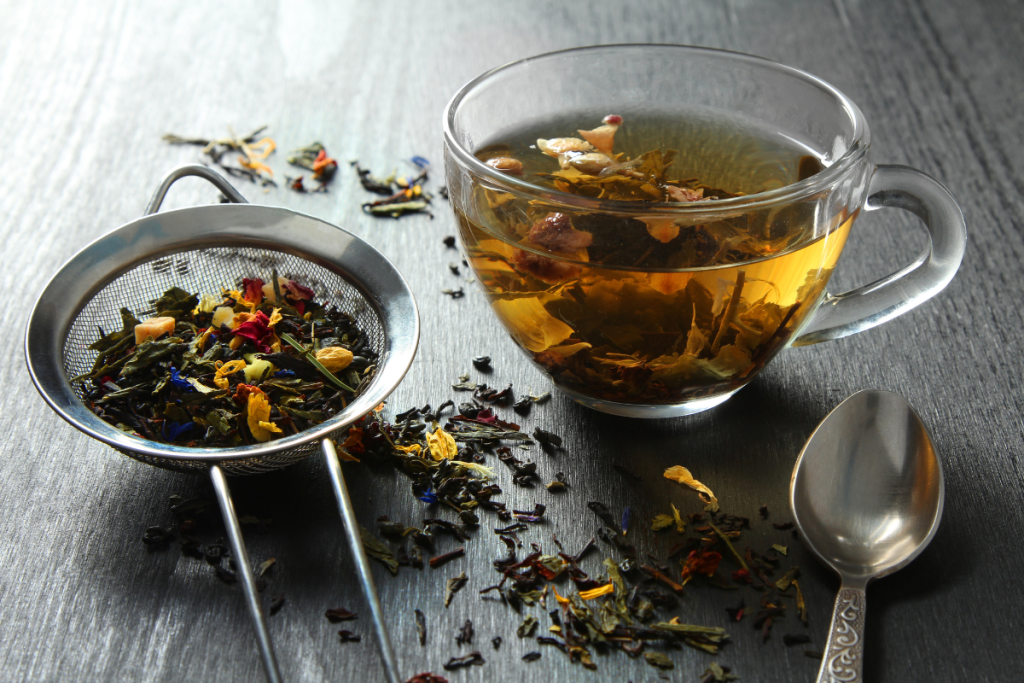
Nourishing Pregnancy Tea
This is a great herbal tea blend to take in pregnancy, especially in your third trimester. It is a nutrient supplement (with iron, calcium, and money more vitamins, minerals, and trace elements), and prepares you for labor. It’s more than a simple red raspberry leaf tea, it includes so much more nutrients a pregnant woman needs. It is delicious both hot and cold, allowing you to make a large batch and put it in the fridge for easy consumption throughout the week. This tea is safe throughout your second and third trimester, but do not drink in early pregnancy in your first trimester.
Ingredients:
- 2 parts red raspberry leaf
- 2 parts nettle
- 1/2 part rose hips
- 1/4 part spearmint leaf
Mix all of the dried herbs together and store them in an airtight container away from light and heat. The cupboard is the best place.
Directions:
- Use a heaping 1/4 cup of the dried herb mixture into a quart-sized jar, teapot, etc.
- Pour boiled water over and steep for no less than 30 minutes and no more than 2 hours.
- Strain the mixture with a mesh strainer or equivalent.
- Add sweetener to taste (honey, maple syrup, stevia).
Notes: Drink 1-4 cups daily.
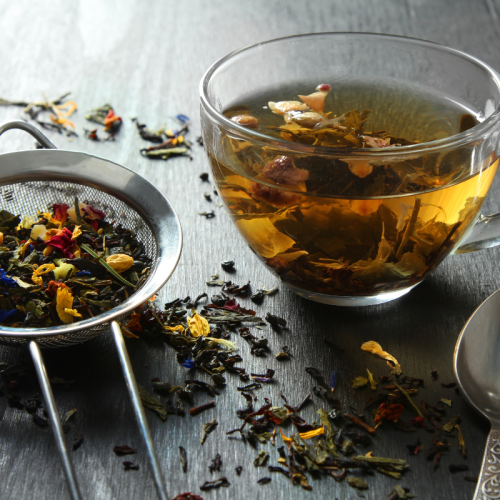
Nourishing Pregnancy Tea
Equipment
- 1 Tea pot
- 1 mesh strainer
Ingredients
- 2 parts red raspberry leaf
- 2 parts nettle
- 1/2 part rose hips
- 1/4 part spearmint leaf
Instructions
- Mix all of the dried herbs together and store them in an airtight container away from light and heat. The cupboard is the best place.
- Use a heaping 1/4 cup of the dried herb mixture into a quart-sized jar, teapot, etc.
- Pour boiled water over and steep for no less than 30 minutes and no more than 2 hours.
- Strain the mixture with a mesh strainer or equivalent.
- Add sweetener to taste (honey, maple syrup, stevia).
Notes
Embrace Herbal Wellness in Your Pregnancy!
Navigating pregnancy deserves an all-encompassing care, and herbal support can be a nurturing companion.
1. Explore Safely: Dive into the world of herbal remedies with a sense of curiosity. Discover the gentle yet effective support they can offer during this transformative period.
2. Consult and Connect: Prioritize conversations with your healthcare provider. Share your interest in incorporating herbal remedies into your routine, ensuring personalized guidance tailored to your unique needs.
3. Educate Yourself: Equip yourself with knowledge about each herb’s benefits, potential contraindications, and appropriate dosages. An informed approach adds an extra layer of confidence to your wellness journey.
4. Celebrate Wellness: Embrace the holistic approach of herbal wellness as you celebrate the miraculous changes within you. Cherish the moments and savor the well-being that comes from the natural embrace of herbs.
Your pregnancy is a remarkable chapter, and herbal support can be a harmonious part of your self-care routine. Embrace the power of nature, stay informed, and relish every step of this incredible journey with the support of herbal remedies. Cheers to a healthy, vibrant, and joy-filled pregnancy!
